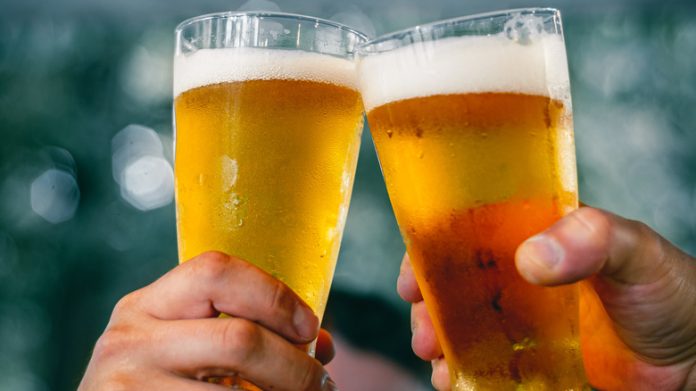Whether you’re on a boat ride, at a party or at a picnic, many people relax with beer. And the chillier it is, the more desirable.
According to online portal Medical News today, light to moderate amounts of beer may help decrease the risk of diseases such as heart disease, neuro-degenerative diseases, and type 2 diabetes.
The portal quickly adds, though, that while there appears to be some benefit to drinking beer, it is not a beverage that individuals should consume excessively.
In the same vein, authorities at Mayo Clinic state that moderate alcohol use for healthy adults generally means up to one drink a day for women and up to two drinks a day for men.
Examples of one drink include: Beer: 12 fluid ounces (1.5 cups); wine: 5 fluid ounces (less than one cup).
What is the healthiest beer?
You have probably seen advertisements stating that some brand of alcoholic beverages contain antioxidants on account of their ‘natural’ ingredients.
We’re sorry to say there’s no magical beer that’s going to fix your health problems – and according to registered dietitian Chris Mohr, it’s one of the fundamental components of beer that’s giving it an unhealthy glow.
Alcohol is one of beer’s main appeal, but it is also a toxic substance. Excessive alcohol consumption can lead to high blood pressure, cancer, a weakened immune system, cognitive dysfunction, mental health problems and alcohol dependency.
Alcohol reduces our inhibitions after consumption, but it also has stimulant effects that impact sleep, which can affect overall quality of life.
“It doesn’t matter where the alcohol is coming from, what matters is the overall alcohol, the alcohol strength, a.k.a, ABV,” Mohr says. “So, whether that’s from beer, whether that’s from wine or whatever other liquor, it’s the alcohol itself.”
The healthiest beer then, according to Mohr, is one that has the lowest ABV, or alcohol by volume. A standard drink of regular beer, according to the National Institute on Alcohol Abuse and Alcoholism, is a 12-ounce beer [less than one liter] that contains 5% alcohol.
“You think you’re drinking one beer, but you just had two drinks in one can,” Mohr says.
The past decade century has seen the rise of “health” beers that boast electrolytes, antioxidants and key nutrients. Don’t be fooled, Mohr says, most of this is marketing language to get consumers to “justify their alcohol consumption.”
“If beer is our source of antioxidants and nutrients, then we have a lot of other issues we need to consider,” Mohr says, laughing. “There are a few (beers) that are fortified with various ingredients, but I certainly wouldn’t turn to beer as my choice of nutrition.”
Regardless of how beer is made, it’s the alcohol content that’s going to make the biggest negative health impact.
That doesn’t mean you have to give up beer or alcohol in general to live a healthy diet, Mohr says, though there are certainly health benefits to sober lifestyles. Low-calorie and light beers are healthier options – they’re generally made with more water than standard beers to cut down on the alcohol content. But not everyone likes the taste of light beers, which Mohr says gives you an opportunity to evaluate why you’re drinking it in the first place.
Indeed, there have also been studies indicating no level of alcohol consumption improves health; so, there really isn’t an amount of beer you can drink per day that would be actively good for you.
“Is this a ‘never drink alcohol’ message? No, but the benefits of not drinking alcohol certainly outweigh the potential benefits of alcohol,” Mohr says.
Beer can also impact weight; alcohol itself has calories, but it’s not acting alone. We’re more likely to overeat when our inhibitions are lower, and because alcohol is a toxin, your body is going to work to get rid of it first and the other food in your system will take longer to digest.
One beer after a long workday can also affect your quality of sleep if it’s close enough to bedtime. Alcohol is a sedative, but it eventually wears off and can cause you to wake up during the middle of the night.
Because of this, Mohr recommends being selective about when you drink and setting parameters for yourself – maybe that’s only drinking when you’re with friends or a few times a week.


